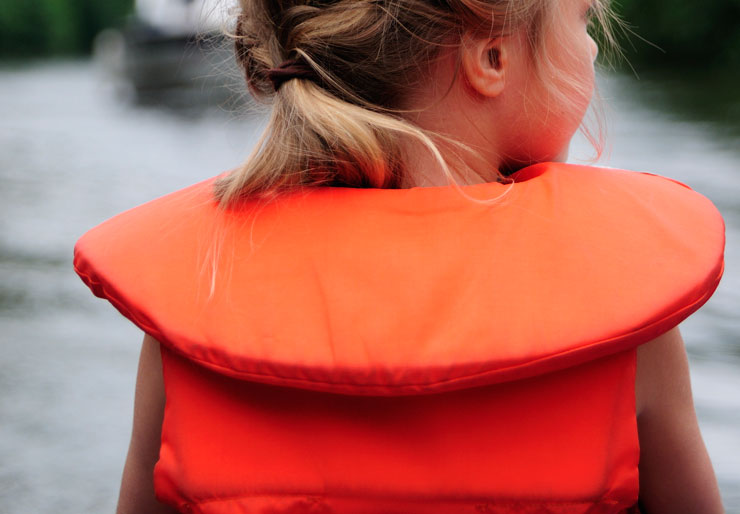
Life jackets for children – what you should know
Fit, weight category and storage are factors that affect how well a life jacket works. Here's some good advice for people intending to buy or hire life jackets for children.
Flotation devices are compulsory
Everyone in recreational craft under 8 m must wear flotation devices when the boat is moving. The skipper of the boat is responsible for ensuring that children under the age of 16 are wearing a suitable flotation device.
The Norwegian Maritime Authority has more information on the requirements applicable to the use of flotation devices in recreational craft.
Choosing life jackets for children
There are many types of vest – life vests, life jackets with collars and inflatable vests. For young children and non-swimmers, the most suitable type is a life jacket with collar. Life jackets contain flotation elements that lift the entire upper body towards the surface, and a collar that helps keep the head above water.
Young children should not wear life vests, either traditional or inflatable. Life vests rarely support the head as well as life jackets, and thereby hold the person in a more upright position in the water. This is more suitable for people who can swim.
Find the right size
Take the child with you when you go to buy or hire the life jacket, to make sure you choose the right weight category and fit. If the life jacket is too big, there's a risk that the flotation properties will not work the way they're supposed to. In the worst case, the child could slip out of the jacket. You should also be aware that if the child is wearing nappies, this can affect the flotation properties of the jacket. It's advisable to use swim nappies that don't get as heavy as ordinary nappies when they get wet.
Check the label
Flotation devices must bear the CE mark. This is your guarantee that the manufacturer complied with all the relevant safety requirements when it produced the jacket. There must also be a label on the life jacket showing how many kilos it is designed for.
Practise in the water
Let the child practise floating, preferably while wearing clothes, to accustom them to how the life jacket works. Be aware that it will not be possible for the life jacket to turn a child over from stomach to back in shallow water.
Hiring life jackets
Many of the fire stations in Norway have life jackets for hire.
Check the properties
Old life jackets do not go out of date, but their flotation properties can deteriorate over time. You should therefore test out the vest in controlled conditions, and replace it if necessary. Newer life jackets also tend to have a better fit than old ones. Whether or not an old life jacket is still usable depends on how it has been stored and maintained.
Store the jacket correctly
Life jackets must have clear markings showing how they should be handled and maintained. Generally, flotation devices must be hung up, in a dry and well ventilated place, out of direct sunlight. If you keep life jackets on your boat during the boating season, make sure they don't come into contact with petrol and oil spills.
Advice on life jackets for children:
- Young children should wear a life jacket with collar
- Always supervise children playing in or near the water, even if they're wearing life jackets
- Check that the life jacket has the CE mark and user instructions in Norwegian
- Make sure the jacket is suitable for the child, is in the right weight category and is a good fit
- Practise using the life jacket in water, preferably while wearing clothes
- Store life jackets properly: hang them in a dry and well ventilated place, and away from direct sunlight, petrol and oil spills
- Everyone in recreational craft under 8 metres must wear a suitable flotation device when the boat is moving. It is the skipper’s responsibility to ensure that children under the age of 15 are wearing a suitable flotation device

